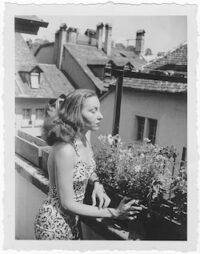 The reading group selection for January is The Apple in the Dark by Clarice Lispector. Our discussion will be held Wednesday, January 31 at 7:00 PM online via Zoom. The Zoom link will be sent the afternoon of the meeting to anyone interested in attending. Email bookbeatorders@gmail.com to sign up. Books are in stock now and discounted 15%. Please call (248) 968-1190 for more information.
The reading group selection for January is The Apple in the Dark by Clarice Lispector. Our discussion will be held Wednesday, January 31 at 7:00 PM online via Zoom. The Zoom link will be sent the afternoon of the meeting to anyone interested in attending. Email bookbeatorders@gmail.com to sign up. Books are in stock now and discounted 15%. Please call (248) 968-1190 for more information.
“It’s the best one,” Clarice Lispector remarked on the occasion of the publication of The Apple in the Dark: “I can’t define it, how it is, I can only say that it’s much better constructed than the previous ones.” A book in three chapters, with three central characters, The Apple in the Dark is in fact highly sculpted, while being chiefly a metaphysical book, and in this stunning new translation, the novel’s mysteries and allegories glow with a fresh scintillating light.
Martim, fleeing from a murder he believes he committed, plunges into the dark nocturnal jungle: stumbling along, in a state of both fear and wonder, eventually he comes to a remote, quiet ranch and finds work with the two women who own it. The women are tranquil enough before his arrival, but are affected by his radical mystery. Soaked through with Martim’s inner night (his soul is in the darkness where everything is created), the novel vibrates with his perpetual searching state of vigil. Often he feels close to an epiphany: “for the first time he was present in the moment in which whatever is happening is happening.” Yet such flashes flicker out, so he’s ever on the watch for “life to take on the dimensions of a destiny.”
In an interview, Lispector once said: “I am Martim.” As she puts it in The Apple in the Dark: “All I’ve got is hunger. And that unstable way of grasping an apple in the dark—without letting it fall.”
“The Apple in the Dark is a retelling, a reversal, a recasting of the creation myth: a very unlikely bestseller, it’s very, very different from anything else she ever wrote. If you put it between The Besieged City, which comes before it, and The Passion According to G. H., which comes after, you’ll see just how radically experimental she was: how little she repeated herself, how she ‘made it new’ every single time.” –Benjamin Moser
“A fitting capstone to a remarkable publishing endeavor.” –Sophia Stewart, The Millions
“An experimental novel about becoming, existing, and being remade: seductive.” –Kirkus Reviews
 Clarice Lispector was born in 1920 to a Jewish family in western Ukraine. As a result of the anti-Semitic violence they endured, the family fled to Brazil in 1922, and Clarice Lispector grew up in Recife. Following the death of her mother when Clarice was nine, she moved to Rio de Janeiro with her father and two sisters, and she went on to study law. With her husband, who worked for the foreign service, she lived in Italy, Switzerland, England, and the United States, until they separated and she returned to Rio in 1959; she died there in 1977. Since her death, Clarice Lispector has earned universal recognition as Brazil’s greatest modern writer.
Clarice Lispector was born in 1920 to a Jewish family in western Ukraine. As a result of the anti-Semitic violence they endured, the family fled to Brazil in 1922, and Clarice Lispector grew up in Recife. Following the death of her mother when Clarice was nine, she moved to Rio de Janeiro with her father and two sisters, and she went on to study law. With her husband, who worked for the foreign service, she lived in Italy, Switzerland, England, and the United States, until they separated and she returned to Rio in 1959; she died there in 1977. Since her death, Clarice Lispector has earned universal recognition as Brazil’s greatest modern writer.
